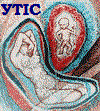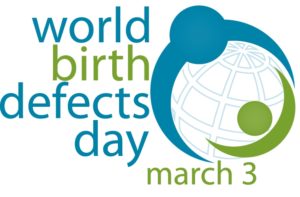
|
|
|
|
|
Dietary and Activity Patterns and Implications on Birth Defects in the Chornobyl Impacted Rivne-Polissia Region in Ukraine
1 Rivne OMNI-Net and Regional Diagnostic Center Medical Genetics Center
2 State University of New York at Binghamton
3 Volyn OMNI-Net Center and Regional Children's Clinical Hospital
4 Ukraine OMNI-Net and University of South Alabama
After the Chornobyl disaster in 1986, population-based birth defects monitoring was initiated in 2000 in five oblasts (provinces) in Ukraine. The northern half of Rivne province, a region known as Polissia, is contaminated by radiation. Systematic monitoring shows consistently high rates of neural tube defects and other developmental disorders. These observations prompted a dietary and subsistence activities survey about consumption of Cs137 contaminated foodstuffs, water, smoke, and agricultural and gardening exposure through dust and soil. Contamination levels measured from one up to 1590 Bq/l in milk, 129 Bq/kg in potatoes, and 146 Bq/kg in soil.
We report preliminary information provided by 99 of 350 surveyed pregnant women residing in the Polissia region of Ukraine. Information gathered concerned consumption of local and imported meat, dairy, fruit, vegetable, and grain products, as well as water use and beverages, including alcohol consumption during pregnancy. We also gathered information about activities likely to expose individuals to radiation through contact with soil, such as working in fields and collecting wild foods or firewood.
Results indicate that most foods consumed in Rivne-Polissia are local or wild and thus contaminated with Cs-137. The government has recommended that milk be imported because of the risk of contamination of local milk. However, less than 5% of individuals reported consuming imported milk. All participants reported consuming local vegetables (none imported), and 97% of the major fruits consumed were locally grown. Furthermore, 73% reported obtaining water from highly contaminated wells or brooks, the rest consumed piped water. In addition, 30% drank alcoholic beverages often as homemade or local beer and liquor. Information about outdoor activities, particularly agricultural fields, and contact with contaminated soil or smoke from burning biomass. Overall, our data indicate that some people in Polissia consume diets that may be deficient in micronutrients, consume alcohol during pregnancy and are exposed to chronic radiation. The extent to which each may be involved in birth defects and developmental nervous system disorders in the Polissia region is unknown and calls for further investigations.
The poster was presented at the 1-st Central and Eastern European Summit
on Preconception Health and Prevention of Birth Defects
(Budapest, August 27-30, 2008)
Click a part to view details








